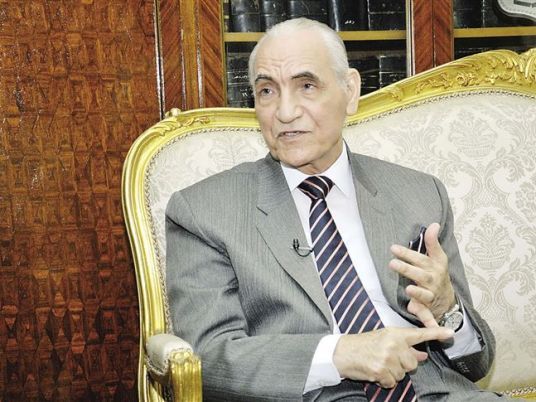 A panel tasked by the Justice Ministry to oversee the confiscation of assets and the closure of NGOs owned by the outlawed Muslim Brotherhood has said it discovered documents that include plans by the group’s ousted government to subdue security and judicial services.
A panel tasked by the Justice Ministry to oversee the confiscation of assets and the closure of NGOs owned by the outlawed Muslim Brotherhood has said it discovered documents that include plans by the group’s ousted government to subdue security and judicial services.
“We have obtained documented evidence of plots to fire several Interior Ministry officers and promote others to the posts of security chiefs and police department heads to buy their allegiances,” said Ezzat Khamis. Khamis runs the panel that froze many assets owned by the group and dissolved several NGOs suspected to have ties to it since the ouster of former president Mohamed Morsi in 2013.
Among the alleged documents and disclosed schemes, according to Khamis, some confirm that the group’s influential Guidance Bureau and its political arm, the dissolved Freedom and Justice Party, had guided the Presidency and the Cabinet even in the selection of ministers and governors.
According to Khamis, the organization also sought to bring about changes to the judicial system, especially at the Supreme Constitutional Court which garnered the animosity of Morsi and Brotherhood supporters after the group-dominated Parliament was annulled in 2012.
“The scheme involved canceling the constitutional court and assigning its duties to the Court of Cassation,” said Khamis. "There were also plans to lower the retirement age for judges."
Khamis went so far as to reveal that the seized documents revealed the Brotherhood was behind the creation of the Black Bloc.
The grassroots group of balaclava-dressed individuals had been involved in organized attacks on Muslim Brotherhood offices and participated in violent protests against the group. Its sponsors remained unknown until its disappearance.
As the Brotherhood won parliamentary majority and its candidate became Egypt’s first elected president following the uprising, several political groups and media outlets opposed to the organization routinely accused it of seeking to dominate on all levels, while excluding other political groups. Morsi's presidency, which took him away from the group's influence, had always been questioned by his opponents.
Khamis’s declaration comes only one day before the fifth anniversary of the 2011 uprising that toppled former president Hosni Mubarak. The Brotherhood has been a regular advocate of these protests since the ouster of its government in 2013 by incumbent president Abdel Fattah al-Sisi.
Security forces have increased the number of arrests issued for advocates of the January 25 protests over the past few weeks. Meanwhile, many media figures and politicians allied with Sisi’s government have been vocal about the punishment protestors would receive, especially those loyal to the Brotherhood.



